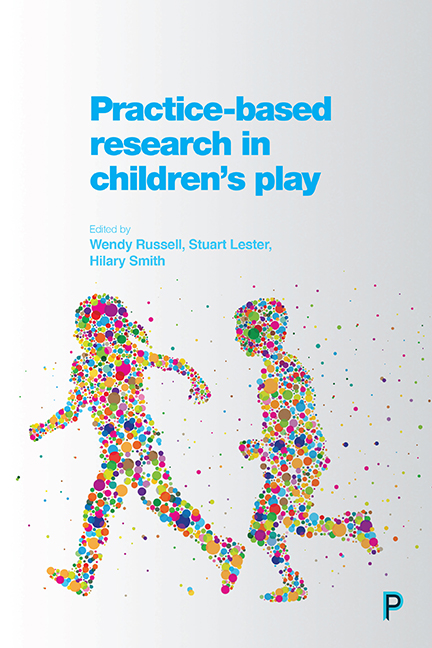Book contents
- Frontmatter
- Contents
- List of figures
- Notes on contributors
- Acknowledgements
- Foreword
- One Perspectives on play research: the practice-theory-research entanglement
- Part One Then and now: historical perspectives
- Part Two Here and there, this and that: spatial and creative perspectives
- Part Three Playfulness and wellbeing
- Closing thoughts
- Appendix: The Playwork Principles
- Index
Eleven - Understandings of play for children with profound and multiple learning disabilities (PMLD)
Published online by Cambridge University Press: 05 April 2022
- Frontmatter
- Contents
- List of figures
- Notes on contributors
- Acknowledgements
- Foreword
- One Perspectives on play research: the practice-theory-research entanglement
- Part One Then and now: historical perspectives
- Part Two Here and there, this and that: spatial and creative perspectives
- Part Three Playfulness and wellbeing
- Closing thoughts
- Appendix: The Playwork Principles
- Index
Summary
One young person was taken to the trampoline in her wheelchair, the playworker said ‘Do you want to go on the trampoline?’ The young person did not respond and so the playworker started to put her in a hoist. The young person began to show physical signs of distress when the playworker started to hoist the young person from their wheelchair and onto the trampoline. Once she was out of the hoist and on the trampoline, the staff member was jumping up and down causing her to bounce up and down. This led to smiles, then laughter and the young person having a very enjoyable time. (Field notes)
Introduction
Playwork practice in the UK is underpinned by the Playwork Principles (PPSG, 2005), which make a number of assumptions about children and play. This study develops an argument showing how the idea of play as freely chosen and personally directed needs careful consideration and perhaps a broader understanding for playworkers working with children with profound and multiple learning disabilities (PMLD), as the opening vignette illustrates. Building on an earlier desk-based study (Smith, 2010), observations and semi-structured interviews were carried out in an afterschool club and holiday play scheme for children with PMLD in south east England. During the interviews, staff said that they felt that some of the playwork theory and ways of describing play in the Playwork Principles (PPSG, 2005) do not relate to their work with children with PMLD. For this reason, playworkers who are working with this group may look for other ways to help guide their practice.
The aim of the research was to explore staff understandings of and attitudes towards the play of children with PMLD and to question whether the Playwork Principles (PPSG, 2005) can effectively support those who work with this group. Drawing on observations, interviews and the literature on working with disabled children, a focus on communication, relationships and playfulness emerged, which has the potential to support playworkers working with children with PMLD.
The chapter opens with a description of the fieldwork methods before briefly introducing the playwork ethos and how this is articulated in the Playwork Principles (PPSG, 2005).
- Type
- Chapter
- Information
- Practice-Based Research in Children's Play , pp. 187 - 202Publisher: Bristol University PressPrint publication year: 2017



